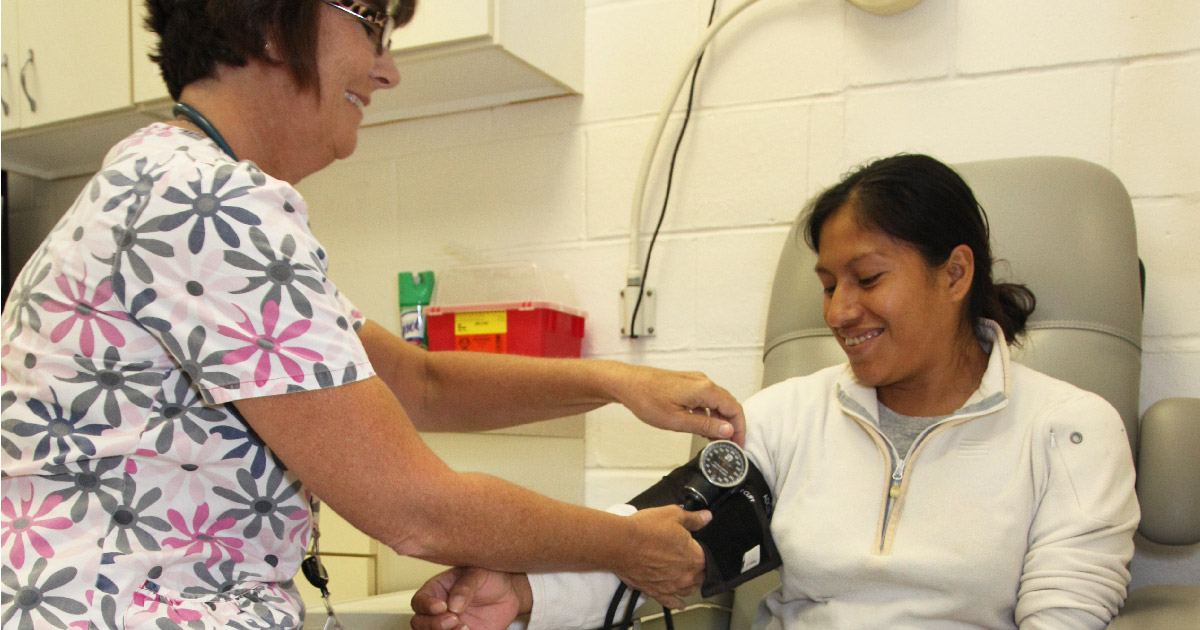- Who We Are
- Clinician Employment
- Publications
- Witness to Witness (W2W)
- El Premio Kugel & Zuroweste a la Justicia en la Salud
- Your Voice Matters: Photovoice Project
WEBINAR: Workers & Health: How Frontline Providers Make a Difference in the Protection of Migrant Workers and Their Families (BRCHS)
DATE RECORDED: Friday, July 11
PRESENTED BY: Ed Zuroweste, MD. Chief Medical Officer, Migrant Clinicians Network
MCN WEBINAR: Pesticide Poisonings. Are you prepared? (June 2014)
DATE RECORDED: Wednesday, June 17, 2014
PRESENTED BY: Matthew Keifer, MD, MPH, Dean Emanuel Endowed Chair/Director National Farm Medicine Center
Occupational and Environmental Health Concerns: Reproductive Health Among Florida Farmworkers
Health care providers who serve farm communities can positively affect workers’ health through greater understanding of the occupational exposures and risks faced by pregnant women in the agricultural workforce. A community-based participatory research (CBPR) study was consucted with a partnership between investigators from Emory University, the University of Florida, the Farmworker Association of Florida, and the Farmworker Health and Safety Institute.
Timezone:
EST
New ACOG Resource Calls for Clinician Responsibility in Preventing Environmental/Occupational Health Risks for Women
Fri, 11/01/2013 | by Candace Kugel
EPA's New Pesticide Resource Includes Expanded Content, Features MCN
Wed, 09/11/2013 | by mpiorunskiYour patient reports stomach pain, nausea and headache. It’s nearing the heart of flu season - these are possible flu symptoms, you think. On examination, the patient doesn’t present with a fever.
“Is anyone at home sick?” you ask.
No.
“When did the symptoms begin?”
Hoy (Today).
You notice the patient appears to be dressed for work. “Where were you when the symptoms began?” you ask.
En el trabajo (At work).
At work, you think. “And what do you do for work?”
AHEConnect Course-Pesticide Related Illness and Health Issues
The purpose of this course is to prepare providers to diagnose and treat acute pesticide poisoning and to increase their awareness of health problems associated with chronic pesticide exposure. While the focus of the course is on workers in agricultural settings, the course contents are also applicable for treating all pesticide related illness.
Webinar: The Nuts & Bolts of Cholinesterase Monitoring

Presenters
Matthew C. Keifer, MD, MPH, Dean Emanuel Endowed Chair/ Director, National Farm Medicine Center
Carolyn Sheridan, RN, BSN, Clinical Director, AgriSafe Network
WEBINAR - The Nuts and Bolts of Cholinesterase Monitoring for Farmers, Ranchers and Agricultural Workers
Exposure to pesticide and other chemicals can constitute serious health risks to hundreds of thousands of farmers, ranchers, agricultural workers and their families. For many people in rural areas, primary care practices are the only source of reliable healthcare. However, there are numerous barriers to recognizing and treating pesticide and other chemical exposures in the primary care setting.
Timezone:
CST
Pacific Northwest Agricultural Safety and Health Center, University of Washington
Presentations by Pacific Northwest Agricultural Safety and Health Center (PNASH):
1. Age Considerations: Impacts on Pesticide Exposure and Health Outcomes
2. How to Identify the Products Your Patients are Exposed to
Files
-
- Age Considerations ( 449 Kb )
-
- How to Identify the Products Your Patients are Exposed to ( 784 Kb )
-
- Reporting, Surveillance, Legal Aspects of Pesticide Related Illness ( 431 Kb )
-
- How to Protect Women and Children-English ( 2 Mb )
-
- How to Protect Women and Children-Spanish ( 2 Mb )
-
- Chronic Health Effects of Pesticide Exposure ( 598 Kb )
The Clinicians Role in Addressing Occupational Health Risks of Adolescent Migrant Farmworkers
This is an MCN online course. The primary objective is to ensure clinicians serving migrant and underserved communities are aware of general childhood agricultural safety and health concerns. This will be accomplished in a way that increases the clinicians’ ability to provide effective healthcare to their patients by assessing and understanding agricultural health risks.




